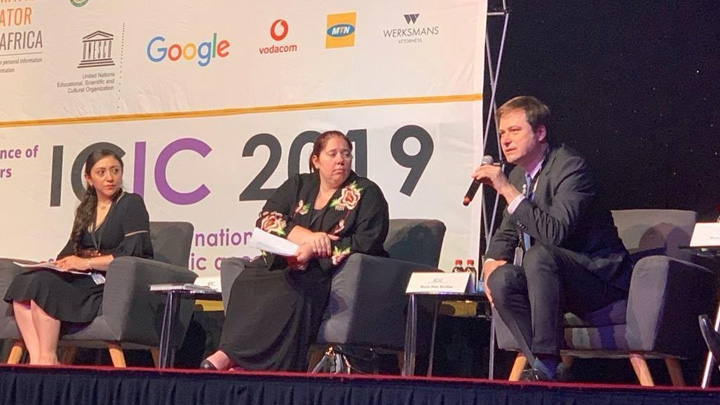The Transparency and Access to Information Network (RTA), document management models, measurement results and cross-cutting application of the gender approach were presented to the meeting

EUROsociAL+ helped the RTA to develop three key models to improve the right to access information in the region: a document and file management model, a model for measuring results, and a method for cross-cutting application of the gender approach. EUROsociAL+ and the RTA also helped the OAS to prepare a new inter-American framework law 2.0 on access to public information.
These initiatives were presented at the International Conference of Information Commissioners held in Johannesburg (South Africa) from 10-13 March, by Borja Díaz Rivillas from the EUROsociAL+ Governance Area at FIIAPP, Mariana Gatti from the Agesic in Uruguay, and Lilián Irazú from the INAI in Mexico.
The main theme of the meeting was ‘International cooperation to strengthen public access to information’. It was attended by right of access to information commissioners and authorities from more than 30 countries, and international bodies and organisations that work in this area.
The conference also addressed issues and challenges such as access to information by vulnerable groups and measurement of SDG 16.10.2., which aims to ensure public access to information, interactions between data protection, the right of access to information and use of new technologies.
During the conference, participants shared experiences to create a future African transparency and access to information network based on lessons learned by the RTA.
The Transparency and Access to Information Network (RTA) was created in 2011 to drive transparency policies and build institutional capacity. The RTA is a formal opportunity for dialogue and cooperation to encourage sharing of experiences to design, implement and evaluate transparency and access to information policies.
The Network is made up of 32 institutions from 17 countries in Latin America (Argentina, Bolivia, Brazil, Costa Rica, Colombia, Chile, Ecuador, El Salvador, Guatemala, Honduras, Mexico, Panama, Paraguay, Peru, the Dominican Republic and Uruguay) and Spain.
Área de políticas de gobernanza democrática. Democratic governance area / Área en FIIAPP, del Programa EUROsociAL+



